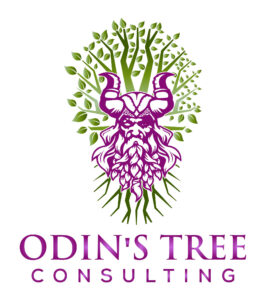Organizations rely on their human resources (HR) department to serve as a strategic business partners. HR professionals play a critical role in driving the success and growth of an organization by managing its most valuable asset – its people. While DEI and equity initiatives have gained significant attention in recent years, it is essential to critically evaluate their impact on your organization. Unfortunately, a large percentage of human resources staff make this their focus at the expense of a solid, successful organization and rely upon woke ideology instead of business acumen, rendering the HR function pretty much useless.
- Alignment with Organizational Strategy:
A solid HR department acts as a crucial bridge between an organization’s strategic goals and its workforce. By understanding the objectives and vision of the company, HR professionals can align their initiatives and programs to support the achievement of these goals. This alignment ensures that HR strategies are directly contributing to the growth and success of the organization. Successful and educated HR professionals rely upon strong business acumen and common sense applications of law and psychology.
- Talent Acquisition and Retention:
One of the primary functions of HR is to attract and retain top talent. Through effective recruitment strategies; HR professionals can identify and onboard individuals who possess the skills and competencies needed to drive the organization forward. Furthermore, a strong HR department focuses on employee engagement, career development, and performance management, all of which contribute to higher employee satisfaction and retention rates. These areas of focus have nothing to do with ethnicity, sexual orientation, or any other factor other than skill, knowledge, and experience.
- Conflict Resolution and Employee Relations:
A robust HR department plays a pivotal role in maintaining a harmonious work environment by managing conflicts and fostering positive employee relations. By providing guidance, mediation, and fair practices, HR professionals ensure that issues are resolved promptly and that employees feel supported and valued. This proactive approach helps in minimizing disruptions and maintaining a productive workforce.
- Compliance and Risk Management:
HR professionals are responsible for ensuring compliance with employment laws, regulations, and industry standards. By staying abreast of legal requirements, HR departments mitigate legal risks and protect the organization from potential lawsuits or penalties. They also implement policies and procedures to ensure ethical practices, thereby safeguarding the organization’s reputation. This includes ensuring there are no practices that inherently cause disparate practices or discrimination.
- Learning and Development:
Investing in employee development is essential for enhancing individual skills and knowledge, which in turn contributes to the growth of the organization. HR departments design and implement training programs, mentorship initiatives, and leadership development opportunities to empower employees and foster a culture of continuous learning. A strong HR professional will recognize that generational differences equate to different learning styles and retention of information potentials depending on the generation.
Challenging the Necessity of DEI and Equity Initiatives: A useless and derogatory excuse to cover up lack of business acumen.
The focus on DEI and equity should not come at the expense of the organization’s overall objectives and performance. In some cases, the implementation of these initiatives may divert resources and attention away from other critical HR functions, leading to unintended consequences.
Moreover, organizations should be cautious about adopting a one-size-fits-all approach to DEI and equity initiatives. Each organization has its unique culture, challenges, and workforce dynamics. A tailored approach that takes into account the organization’s specific needs and goals is more likely to yield sustainable results.
Here are a few reasons why these initiatives may be unnecessary and potentially harmful:
- Merit-Based Approach: Your organization should believe in recognizing and rewarding employees based solely on their merits, skills, and contributions. Initiatives that prioritize demographic characteristics rather than individual performance can potentially undermine this principle and create a perception of favoritism.
- Talent Acquisition and Retention: By focusing on DEI and equity initiatives, organizations may inadvertently compromise the merit-based recruitment process. This could lead to the recruitment of less qualified candidates who do not align with our organization’s strategic goals. Additionally, such initiatives may overshadow the importance of retaining high-performing employees by promoting a culture where diversity is valued over individual accomplishments.
- Adverse Impact on Employee Morale: Implementing DEI and equity initiatives without a comprehensive understanding of our organization’s specific needs and dynamics can lead to unintended consequences. It may generate resentment among employees who may perceive preferential treatment based on demographic characteristics rather than their skills and contributions. This can negatively impact overall employee morale and hinder team cohesion.
- Potential Legal Risks: While promoting diversity and inclusion is important, initiatives that prioritize demographic characteristics over merit may expose our organization to legal risks. Hiring or promoting individuals solely based on their demographic characteristics may be viewed as discriminatory, potentially leading to legal disputes and damage to your company’s reputation as well as killing employee morale.
A strong HR department, acting as a strategic business partner, is essential for the success of any organization. By aligning HR strategies with organizational goals, attracting and retaining top talent, resolving conflicts, ensuring compliance, and fostering continuous learning, HR professionals contribute to the overall growth and prosperity of the organization. While initiatives such as DEI and equity are important, organizations should carefully evaluate their relevance and potential impact on their specific business objectives. By striking the right balance, HR departments can drive positive change while ensuring the organization’s long-term success.




